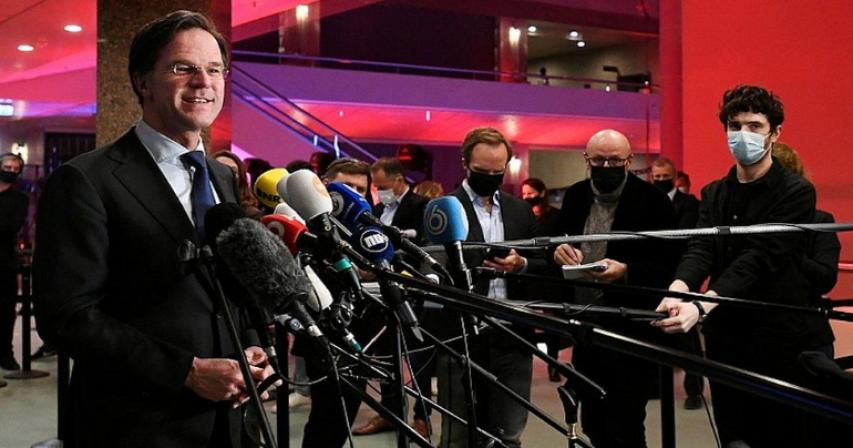Dutch election - PM Mark Rutte wins most seats
- 3 years ago

Dutch Prime Minister Mark Rutte's party has won the most seats in parliamentary elections, final results show.
It gives Mr Rutte a mandate to form a new coalition government led by his centre-right VVD party. It will be his fourth term as prime minister.
His last government resigned in January over a child welfare fraud scandal.
The VVD is projected to win 36 out of 150 seats, while centre-left D66 is set to have 24 seats, and far-right PVV is expected to have 17.
Meanwhile the centre-right Christian CDA is expected to win 15 seats, Labour (PvdA) nine seats, and green Groenlinks are projected to have seven seats.
Turnout was high, at 82.6%.
"The voters of the Netherlands have given my party an overwhelming vote of confidence," Mr Rutte told reporters in parliament.
He conceded that "not everything has gone well in the last 10 years" but said the main issue on the table was how to rebuild the country after the Covid-19 pandemic.
"I have the energy for another ten years," he said.
After finding out they were predicted to have the second-highest number of seats, D66's campaign leader described how party leader Sigrid Kaag had jumped on the table with happiness.
She said she believed voters had been ready for "the optimism and vision" of her party.
"I have always believed, and this evening it's been confirmed, that the Dutch are not extremists, but are moderate. People appreciate positivity, relying on your own strength and making sure others are valued for their own worth," she told reporters.
Geert Wilders, head of the PVV, said he had "hoped for more than 17 seats" but pledged that his party's "counter-voice" would be heard from the opposition. Another far-right party, Forum for Democracy, was set to have eight seats, despite an anti-Semitism row in the run-up to the vote.
This election was widely seen as a referendum on the Dutch government's response to the Covid-19 pandemic.
More than 16,000 people have died of Covid-19 in the Netherlands, and anti-lockdown protests in the country have turned violent.
A night-time curfew is currently in place, as is a ban on public gatherings in the daytime, in order to try and curb the country's high infection rates.
As a result, most of the election's campaigns were conducted through television debates.
On election day, people cast their votes in sanitised ballot booths, and those classed as clinically vulnerable were able to vote early.
The Netherlands is governed by a proportional representation (PR) system and 37 parties took part in the race.
In order to calculate how seats are divided between the parties, the overall number of votes cast is divided by 150 - the number of seats in parliament.
Any party getting more than that number of votes is guaranteed at least one seat in parliament.
Source: BBC
Comments